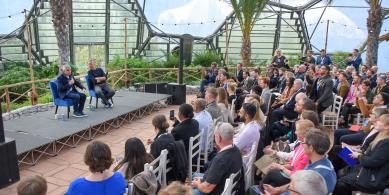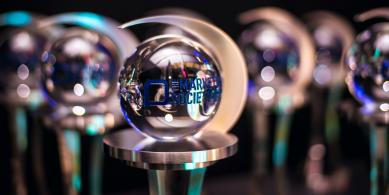The coffee-pot whistles on a dreary Tuesday morning, and the TV hums in the corner.
A quick look at the calendar reveals a cascade of meetings, whilst you discover your beloved flatmate has (yet again) done the last of the milk.
It might push you to ask: What is the point?
Such is the frenetic pace of our culture, its daily demands and dramas, that it’s rare we have a chance to step back and evaluate the meaning of things.
What is it that we are really driving toward or setting out to achieve? To earn some money? But then, why? For a house, holiday or a wedding? A limitless supply of milk? But then what follows that? You’re not the first to ask.
Before we look forward, we must look back.
 This very fundamental of questions was first asked two and half millennia ago. It derives from Aristotle’s concept of Teleology: all things must have purpose or meaning. A lexical collaboration between the words ‘Telos’, meaning end goal, and ‘Logos’, meaning reason or explanation. As he saw it, everything is done in order to proceed to an end-state: a tree is chopped down to produce planks of wood, which then become the hull of a ship. Yet, for all Aristotle’s wisdom, the World he existed in was a far simpler one. Man-made objects were much closer to their rawer form.
This very fundamental of questions was first asked two and half millennia ago. It derives from Aristotle’s concept of Teleology: all things must have purpose or meaning. A lexical collaboration between the words ‘Telos’, meaning end goal, and ‘Logos’, meaning reason or explanation. As he saw it, everything is done in order to proceed to an end-state: a tree is chopped down to produce planks of wood, which then become the hull of a ship. Yet, for all Aristotle’s wisdom, the World he existed in was a far simpler one. Man-made objects were much closer to their rawer form.
You can stand back merrily and appreciate your role in the process; what a fine vessel you’ve created. Whereas now, in our complex digital universe, the lines are somewhat more obscured. You might produce a document designed on a programme that runs based on a series of microprocessors, which exists in an ethereal cloud space, and is sent to a person via your phone. Meeting done, off to the next one. So, what have you made exactly? How do you then stand back and admire that outcome of your endeavours?
Flash forward a few thousand years and we come closer to the source of the issue. In the 1980s, Bill Gates said to the World that he would put a computer on every desk. It was an audacious claim, but arguably one of the most incredible feats in corporate history, changing the way we work, think and behave on a daily basis. By the early 90s, just a decade later, 20m personal computers were sold a year, reaching 140m by 2000 and an install base of 1bn by 2007 (Arstechnica; Statista).
There are two things that are particularly interesting about Gates’ aim. The first, is that Microsoft don't actually sell computers. They sell software.
You might be using some of it right now, silently ticking away beneath the hood. And yet there was nothing in Microsoft’s mission about being the best software supplier, ousting their perennial arch-nemesis, Apple, or gaining a particular market share. It was a much bigger goal. One that they would indirectly benefit from, yet, at its core, it foresaw the way that computing-technology would fundamentally change the way we go about our work, and therefore sought to put this new wave of power in the hands of everyone; ultimate accessibility; a noble intent.
The second interesting facet to this goal is the way it has transformed our working behaviour. On the one hand, yes, the power of computing is now omnipresent, but it came with a catch that we are still suffering the consequences of today: desks. A perhaps unintentional clause in Gates’ mission meant that for decades computers were wedded around these analogue anchors. Keyboards, CRT monitors and boxy computer cases didn’t lend themselves to manoeuvrability. They were built specifically for a desk. And thus society built around this at frightening scale: cities full of skyscrapers full of floors full of desks full of computers. The modern, tap-and-click centric World of deskwork was born.
One man’s corporate acclaim may have catalysed millions of others’ corporate drudgery. As the new millennia approached, the search for alternative meaning was on, akin to Neo’s desperate bid to get out of the cubicle culture.
Therein, we had to look at work in a different way, not just corporate optimisation. We are familiar with exchanging our skillsets for payment, but this transactional formula needed a few extra components.
Enter, Ikigai.

The Japanese ‘reason for being’ model looks for the overlaps between passions, professions, vocation and missions. Whilst, in isolation, these aren’t necessarily new or surprising concepts, it does help us to pull apart how we are able to divide our attention and, more critically, time between each area. The natural inclination has become to pursue each tenet through independent projects – aside from conventional work, it’s believed that up to 85% of millennials have ‘side hustles’ that they actively pursue (Recruiter; QZ). Perhaps one of the reasons that this has become so commonplace is because millennials are endeavouring to recoup their ‘Ikigai deficit’; if the day is destined to be working for the man, the night will be dedicated to working for the mana.
However, by drawing a simple line through its axis, you could argue that Profession + Mission = Ikigai. Therefore, a much simpler (and less time exhaustive) approach would be to ensure that our corporate and world-benefiting ambitions are aligned.
What if every day you were pursuing your passion and work at the same time?
There are ever-more examples of companies who have thrived under this belief, from Patagonia’s aversion of ‘unnecessary harm’ to the planet, Deep Mind’s intent to ‘Solve intelligence’ to make the World a better place, or Airbnb’s ambition for all to feel like they ‘Belong’ anywhere (see below for full missions). These are guiding lights that aren’t grounded solely in corporate metrics, but humanist qualities.
Further yet, it’s proving to be a mutually beneficial paradigm: purpose reaps profit. According to Accenture, “consumers who scored retailers higher on purpose spent 31% more”, whilst Cone Communications’ research demonstrated that “87% of Americans would purchase a product because a company advocated for an issue they cared about, whilst more than two-thirds will refuse to do so upon learning the company supported an issue contrary to their beliefs”. Nor is this a trend that lives solely in B2C. Millennials are pushing B2B companies towards greater social impact, with ever-more influence in the procurement process for new vendors; up to two-thirds have a stake in the decision making (Eric Vidal; Sacunas: B2B Millennials Report).
This all leads to our telos, and final question: what is the mission? As the Ikigai model suggests, a key component is working towards something that the World needs. Herein, we could look at what it is that the World is in dire need of and, alas, we aren’t short of options:
Based on latest available data, the World needs 155tn kwh of energy each year (that’s 155,000,000,000,000 kwh), of which only 20% is currently sustainable; there are 41,415 species of animals that are currently on the ICUN red list in need of sustainable protection; there are around 450million people currently suffering from mental health conditions; the many intricate drivers and challenges around education (UNESCO). The list could go on.
Whilst there are plenty of ‘big’ goals to contribute towards, it makes more sense to be targeted to an area within your immediate control; an energy company will better serve sustainable energy goals than mental health ones.
For those in the consultative industries - who create, communicate, devise and develop for their clients - perhaps it’s about empowering the change the World needs through your clients. At Your Favourite Story, our mission is to become the very best in the World at Launch Marketing; catalysing change through and for the people we work with. This means embracing total mobility and fluidity so you can stand alongside them in the clinics at noon, and be there for them on the picket line at night, without a worry for the wellbeing of your desk. Because, really, there are many more exciting and relevant places to be….
“You want to wake up in the morning and think the future is going to be great - and that's what being a spacefaring civilization is all about. It's about believing in the future and thinking that the future will be better than the past. And I can't think of anything more exciting than going out there and being among the stars.” – Elon Musk--
Read more:
Patagonia: Build the best product, cause no unnecessary harm, use business to inspire and implement solutions to the environmental crisis (Patagonia)
Deep mind: Solve intelligence. Use it to make the World a better place (Deep mind)
Airbnb: To make people around the World feel like they could “Belong anywhere”. (Fortune)
WWF: To stop the degradation of the planet's natural environment and to build a future in which people live in harmony with nature, by:
- conserving the world's biological diversity
- ensuring that the use of renewable natural resources is sustainable
- promoting the reduction of pollution and wasteful consumption. (WWF)
By Steve Quirke, head of strategy, www.yourfavouritestory.com
Newsletter
Enjoy this? Get more.
Our monthly newsletter, The Edit, curates the very best of our latest content including articles, podcasts, video.
Become a member
Not a member yet?
Now it's time for you and your team to get involved. Get access to world-class events, exclusive publications, professional development, partner discounts and the chance to grow your network.




